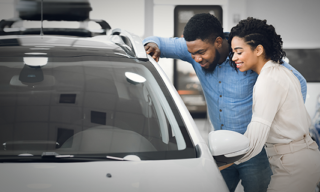Historically, loyalty has played a huge role in car buyers’ decision-making processes. If a customer was happy with a particular brand or model, or had enjoyed a positive experience at the dealership, then they tended to stick with them for their next purchase – and perhaps for a lifetime. However, times are changing.
Ever since the global financial crash of 2008, this loyalty has taken a beating. Buyers have become more budget-conscious, increasing the desire, and in some cases, the need, to shop around. Meanwhile the digitisation of the automotive sector, and retail in general, has meant this shopping around has become much easier to do.
And as if this wasn’t enough, the fundamental changes to buying caused by COVID-19 and the economic turbulence ahead has caused many to tighten their belts further – making the fight for car buyer loyalty an even harder one.
So, in the first part of this two-blog series, we’ll investigate the reasons behind the demise of car buyer loyalty. Part 2 will explore how, despite the challenging circumstances, dealerships can still develop loyal customers in the post-pandemic era.
The demise of car buyer loyalty
It has never been easier for prospective customers to shop around. In the pre-internet age, checking out five or six different models at a particular price point often meant an entire day of travelling to a host of different dealerships. But nowadays, with every single brand, model and dealership in the country at our fingertips, 92% of us research online before we buy. What would have been a day of browsing is now possible in minutes, and without even leaving the house.
The ability to browse on the internet also means customers have vastly more information to hand when making their assessments and decisions. The old way of gathering brochures and car magazines, and poring over spec sheets to determine the best car for their needs, has long been consigned to the dustbin.
Now, as well as having online access to virtually limitless information and reviews, they can use comparison sites to make their assessment of different models. This means that no longer do customers see different cars through the prism of the dealerships they visit. Instead, they see different models in a comparison table on a website and work out which one they want.

Generational shifts have a part to play here too. With younger, more digitally savvy generations entering the market, so attitudes around buying cars – or indeed, buying anything – are changing.
Older buyers will be more used to building relationships with individual brands, dealers and even specific sales executives within that dealerships. The “Uber Generation” on the other hand, would much rather rely on technology to research and buy – avoiding direct communication with human salespeople wherever possible. This makes the job of building a trusting and loyal relationship a much more difficult one.
So is loyalty still important?
In a word, yes. Although it has become less common over the last decade, the value of loyalty to a dealer in customer retention terms remains significant. Research has found that it can cost up to five times more to acquire a new customer than to retain an existing one.
All is not lost with younger buyers either. Despite the general shifts mentioned earlier, the pandemic has created an opportunity for dealers to foster loyalty and strong relationships with their fresher-faced customers.
This is because it’s likely to reverse, or at least pause, a long-term shift towards alternative methods of travel amongst younger consumers. A generation which has been poised to reject car ownership, are now very much a viable market for dealerships – owing to the fact young buyers will likely prefer the safety and comfort of a private vehicle.
So although loyalty in the car-buying world perhaps isn’t what it was, it remains a valuable part of the dealer or sales executive’s playbook. And it’s for this reason that dealerships should be focused on deploying strategies to increase loyalty amongst their customers.
Improving both the physical and digital experience of customers and focusing more on after sales are just two ways dealerships can foster loyalty. In the times we live in, how you communicate with your customers can also go a long way to securing their long-term custom.
These are all tips we explore in more detail in the next blog in this series. We’ll be releasing it in the next couple of weeks, so keep an eye on your inbox and citnow.com/blog for more information.





